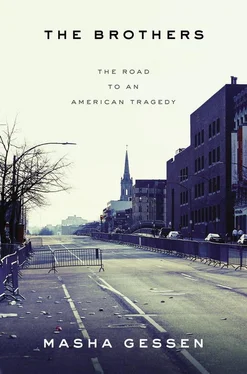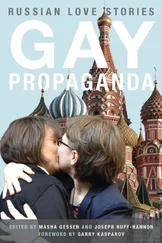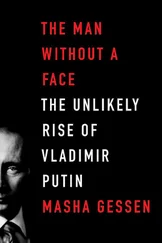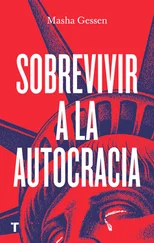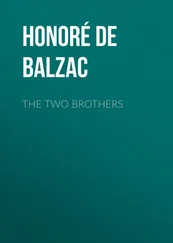The Chechen community in and around Boston numbers only a handful of families. This was the community that Anzor and Zubeidat joined when they came. It also happens to come close to representing the entire range of the Chechen immigrant experience in the United States. Makhmud Mazaev was probably the first to arrive—in 1994, just as the war was about to break out. He had been a urologist in Grozny, but learned upon arrival in the United States that he was too old to requalify as a doctor. He got a nursing certificate and worked as a visiting nurse. Later he created a thriving business, a day center for elderly Russian speakers. It is called Zdorovye, the Russian word for “health.” In the morning a half-dozen Zdorovye vans make the rounds of several Boston neighborhoods, collecting elderly people who are well enough to live on their own but not to care for themselves during the day. Zdorovye attends to their meals, tracks their medical appointments, and celebrates their birthdays with them. Mazaev is the classic—and rare—example of a successfully assimilated Chechen refugee. He goes by the name Max; his American-born son, Baudy, who is about Dzhokhar Tsarnaev’s age, is a student at competitive Boston University; and he has friends in Boston’s large community of Russian-speaking Jews, from which he draws most of his clientele. One friend is a younger Russian Jewish doctor who often joins Mazaev on trips to New Hampshire, just an hour’s drive north, where Mazaev likes to go for target practice: even an assimilated Chechen man wants to get his shooting done, and the range in New Hampshire is the only open-air one in the area.
Not far from the shooting range, in a ground-floor apartment in a complex in Manchester, New Hampshire, lives Mazaev’s cousin Musa Khadzhimuratov, an entirely different kind of Chechen refugee. Khadzhimuratov joined the war effort in Chechnya as a teenager and in a few years became the head of security for Akhmed Zakayev, a former actor who served as foreign minister in the separatist government. At the beginning of the second war, a wounded Zakayev fled Chechnya—he would later be granted political asylum in the United Kingdom—and Khadzhimuratov went into hiding. Russian troops found him, shot him, and left him for dead. He survived. His family moved him to Azerbaijan, where he underwent a series of operations. He is paralyzed from the waist down, he lacks sensation in eighty percent of his body, he has frequent petit mal seizures, and he requires around-the-clock care, but he is alive. Khadzhimuratov, his wife, Madina, and their two small children were brought to the United States by a refugee foundation, on a plane with one other family from Chechnya and a score of families fleeing Afghanistan. The Khadzhimuratovs landed in New Hampshire by accident—they had been told they were going to the Boston suburb of Chelsea, where one Chechen family already lived, but were rerouted at the last minute to what they thought was Manhattan but turned out to be Manchester. They were placed in a second-floor apartment that had a hallway with a step in it, which meant that Khadzhimuratov could not make it from the bedroom to the bathroom. The entire family stayed in the living room, with Khadzhimuratov and his son sleeping on a mattress on the floor and Madina and their daughter sleeping in armchairs. By the time they found a ground-floor, wheelchair-accessible apartment a few weeks later, they did not want to think of changing cities. The Khadzhimuratovs live on public assistance, but perhaps because the relative isolation of New Hampshire requires this, they have also assimilated to a significant extent. Their spotless two-bedroom apartment is as open as any traditional Chechen home: the kids of the Sudanese family from upstairs come here after school with the Khadzhimuratov children and never leave; a retired American named Jim, who lost all ties to his family after a bitter divorce, has adopted the Khadzhimuratovs, or has been adopted by them—he is here every afternoon. Madina, on whom Khadzhimuratov is dependent for constant care, shows none of the deference traditional for a Chechen woman. She sits at the table with everyone else and interrupts with laughter and even with the occasional correction.
That other family from the Khadzhimuratovs’ plane made it to Chelsea, making a total of two Chechen families in that suburb. They were a middle-aged woman, her son, his wife, and their toddler daughter: the woman’s husband and her other son had been taken away by Russian security services and never returned. The other Chelsea family was that of Hamzat Umarov, his wife, Raisa, and their seven small children, who had come by way of a refugee camp in Turkey—and before that, they had crossed the border from Chechnya on foot, at the height of the fighting. An equally dramatic escape story belongs to the Boston Chechen community’s celebrity, Khassan Baiev. Before the first war, Baiev was an up-and-coming plastic surgeon with a profitable practice in Grozny and a side business not unlike Jamal Tsarnaev’s. During the war he ran a field hospital where, he says, he treated the wounded from all sides. At the start of the second war he was targeted, ostensibly for having aided the rebels. A human rights organization virtually smuggled him out of Russia and helped him apply for asylum in the United States; eventually he was able to bring his wife and three children over. Like Mazaev, Baiev concluded he would be unable to be recertified as a doctor in the United States. He tried to volunteer at a hospital. He wrote a memoir with the help of a Boston journalism professor who had once been posted to Moscow. Eventually, after the war ended, he drifted back to Russia, where he now once again has a lucrative plastic surgery practice, which keeps him in ostentatiously expensive clothes and his family living in the middle-class Boston suburb of Needham, in a cul-de-sac with a playground in the middle.
When the Tsarnaevs arrived in Boston, the two doctors’ families—the Mazaevs and the Baievs—were already there, as was Hamzat Umarov’s large family in Chelsea. The others had not yet arrived. The Tsarnaevs’ timing was as bad as it had ever been: they landed in America precisely at the moment when they and their kind were seen as most suspect.
• • •
AMERICAN SOCIETY,perhaps more than some others, goes through distinct cycles, separated by shifts in the national psyche. But to a new immigrant, nothing was here before—and there is no inkling that things will be different after. There is only the mood of the present moment, and this mood becomes what America feels like. The Tsarnaevs arrived a few months after the September 11, 2001, attacks on New York and Washington had united Americans in fear.
The family had plenty of experience with the power of tragedy to bring a nation together. They had seen this most recently in Russia, in August and September 1999. On three nights bombs had gone off in apartment buildings, burying people under the rubble in their sleep. More than three hundred people died, and Russia, gripped by terror, quickly turned against the Chechens, who were blamed for the attacks. Chechen men throughout Russia were rounded up, Chechen children were hounded out of school, Chechen families were chased out of their homes. The war in Dagestan started. What was now happening in the United States did not look very different: there were the witch hunts, and there was the punitive war in a faraway abstraction of a land. It was called, tellingly and absurdly, the War on Terror, an emotion all nations would like to declare war against if only that were possible. Instead, they waged war on the Muslims. It was always the Muslims.
The Tsarnaevs came to this land, terrorized by the specter of terrorism, from a land and a moment where terrorism looked markedly different. For Americans, terrorism seemed to come from nowhere and to attack them for no reason. In Russia, the first terrorist act that shook the country in the 1990s had been a direct consequence of the war in Chechnya. In June 1995 rebel field commander Shamil Basayev led his troops across the Chechen border into the predominantly ethnic-Russian Stavropol region and seized over six hundred hostages in a civilian hospital and in the surrounding area. This hostage-taking is almost certainly unique in modern terrorist history: first, because most of the hostages survived but were not freed by force; second, and most incredible, because this act of terrorism accomplished its avowed goal.
Читать дальше
